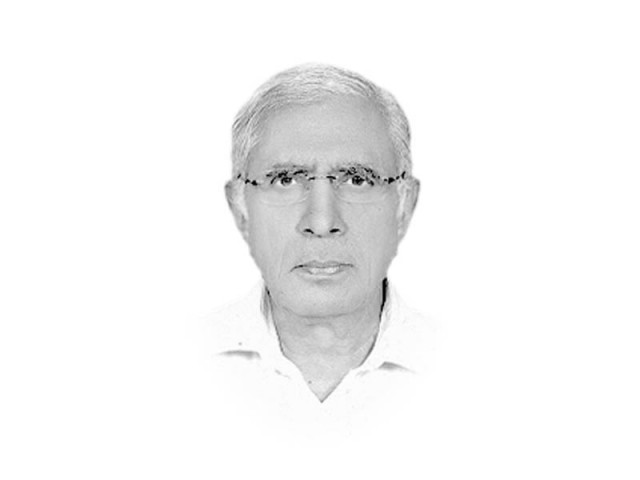The penultimate round
Today, for the first time in our history, we are a work-in-progress federation, not anymore a unitary state.

The writer is Executive Editor of The Express Tribune
Any one of the four, on his own or in the company of one or two others, could have easily disrupted the democratic process any time during the past five years. But despite the jostling, the bumping into each other, stepping on one another’s toes and on occasions, seemingly crossing their respective constitutional boundaries, all the four, on the face of it, held back at the last moment making it possible for the country to come so close to crossing an accident-prone bridge.
Here, it would not be out of place to note that you cannot switch off the army’s propensity to become involved in the civilian domain overnight. It will take time for the institution which has been calling all the shots, all these years, to learn to live within its constitutional limits.
And similarly, you cannot switch on overnight, civilian competence to govern with a degree of efficiency. What to talk of being in the position of formulating national policies, the civilians were never ever allowed all these years even a look into the national decision-making processes. They will also take time to learn the ropes.

And it would not be entirely right to predict the outcome of the May 11 polls on the basis of data gleaned from the past polls. In the first place, all except the last one were known to have been rigged. And while no one has questioned the results of the last one, it was, after all, held under a military dictator heading an all-powerful centre.
To start with, this time around, the elections are being held — thanks to the Eighteenth Constitutional Amendment — with most of the political and financial powers in the hands of the four provinces and the centre giving up many of its responsibilities and also most of its revenues to the provinces.
And today, for the first time in our history, we are a work-in-progress federation, not anymore a unitary state, which we had remained all these 66 years. Secondly, despite all their flaws and imperfections because of being first-timers, an independent Election Commission of Pakistan is holding the elections and we have neutral executives in Islamabad and in the provincial capitals, with an assertively independent superior judiciary and a vibrant media closely watching their conduct. Thirdly, never ever was an election held under direct threat, as it is this time, from a bloodthirsty band of terrorists.
Mercifully for the voters and the contesting candidates, this time around, the period allocated for contacting voters and seeking their support has been limited to only 20 days. Still, in view of the terror threat, the political parties need to adopt innovative steps to continue their electioneering without getting themselves unnecessarily exposed to danger.
In any case, it is on the basis of their performance during their five-year tenure in power and not on the basis of how many and how big rallies they would manage to bring out before the polls that the PPP, the ANP and the MQM would get votes on May 11.
Even the PML-N, which was in power in Punjab, covering more than half of Pakistan, would not have needed to go public asking for votes had it not been for Imran Khan’s relentless challenge to the Sharifs in their power base. In fact, it is only the PTI which needs these public outings because it is a brand new player on the block. And unlike the other entrenched political parties, it does not have a vote bank of its own, yet.
Published in The Express Tribune, April 24th, 2013.















COMMENTS
Comments are moderated and generally will be posted if they are on-topic and not abusive.
For more information, please see our Comments FAQ